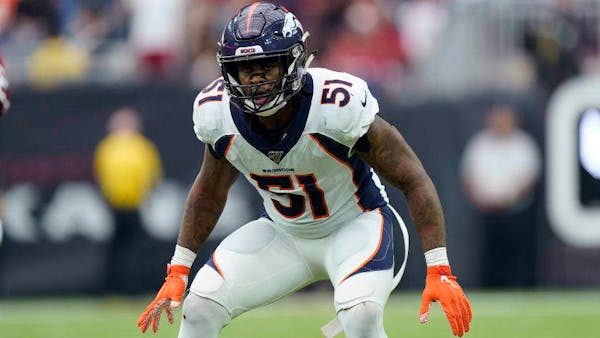An Access Vikings podcast listener asked us on our most recent episode — which went online Thursday — to come up with positive developments in this predominantly negative 1-5 season.
Andrew Krammer started, bringing up the emergence of second-year tight end Irv Smith Jr. in recent weeks. Smith has caught four passes each of the past two games, topping 50 yards both times, after totaling just two catches through the first four games of the season.
Ben Goessling noted the biggest one by far: rookie wide receiver Justin Jefferson. He has the highest Pro Football Focus grade of any receiver in the NFL and has caught 28 passes for 537 yards while topping 100 yards three of the past four weeks.
Going third out of three people and trying to find a positive sign for this season wasn't easy, but when put on the spot I decided to go with the offense in general. Despite Kirk Cousins' obvious struggles with turnovers and inconsistency, that side of the ball has shown at least an ability to hold its own in the games when the Vikings were competitive this season and looks to have pieces for the future.
(That I have spun three positives into a negative-sounding headline is truly an accomplishment).
In any event, I was struck after the fact that all three of us chose something relating to the offense as our rays of hope.
It's not surprising, I suppose, given that the Vikings rank No. 17 in points and No. 14 in yards on offense this season while ranking No. 30 and No. 29 in those defensive categories. But those rankings in the context of Mike Zimmer's teams are a surprise.
In Zimmer's six full seasons as Vikings head coach, Minnesota has never finished lower than 11th in points allowed. And the Vikings have never finished with an offensive ranking in points scored or yards that was better than their defensive ranking in those categories in Zimmer's six seasons.
But this is the direction the Vikings have been trending. In an ideal world, the Vikings would be good in both — as they were in 2017 and 2019, when they ranked in the top 10 in points scored and points allowed.
In the real world, the shift is a consequence of the Vikings' actions — and, as the headline suggests, the coming to fruition of what Zimmer articulated during one of the most honest media sessions of his tenure at the scouting combine 2018.
The Vikings were mulling their quarterback options at the time, trying to decide whether to re-sign Case Keenum (or perhaps Teddy Bridgewater or Sam Bradford), invest in a low-price stopgap, perhaps draft a QB or go all-in during free agency on an expensive but stabilizing presence less than months after reaching the NFC title game with Keenum.
Zimmer said at the time, on March 1, 2018: "I think it's really, really important that we understand — and I'm not just saying this — we've won 40 games in the last four years. We've done that by being pretty good on defense. This year obviously the offense was much better, but part of the reason we've been winning games and staying in games is because we've been playing good on defense and we've been a smart team and all those things. I want to be really careful about taking away from our strength and saying, 'OK, we're not going to be able to do this and we're not going to be able to do that anymore because of financial reasons or something else.'"
The Vikings of course ended up signing Kirk Cousins, the biggest all-in move they could have made at that position. And while it hasn't stopped them from retaining a decent amount of their defensive core, it certainly has influenced the direction of their team toward the one you see today.
Simply put: When you invest that much money in a quarterback, there are fewer resources to commit to the defense. It also sends a signal — and naturally triggers more investment on offense.
Since signing Cousins to the fully guaranteed $84 million deal in mid-March of 2018, just two weeks after Zimmer's comments at the combine, the Vikings have:
*Used six of their nine picks in the top three rounds of the draft on offensive players: linemen Brian O'Neill, Garrett Bradbury and Ezra Cleveland, running back Alexander Mattison plus the aforementioned Smith and Jefferson.
*Used precious cap space to extend running back Dalvin Cook and keep tight end Kyle Rudolph.
*Extended Cousins himself through 2022.
It's no wonder the Vikings' fortunes this year hinge on offense and that it has become a bright spot. What they probably couldn't have imagined, of course, is just how far the defense would fall early on in 2020 — even without the injured Danielle Hunter, Anthony Barr and with a very inexperienced secondary.
But the results are what they are. And coaches are ultimately judged not just by results but by how those results are measured against expectations. Zimmer surely knew that on that fateful day at the combine as well when he said this about their impending QB decision.
"It's important for myself and [General Manager] Rick [Spielman] and the organization that we pick the right guy that is going to help us to continue to move forward," Zimmer said. "If we don't do that, then I'll probably get fired."

Edina sophomore two-sport standout on recruiting: 'Gotten a little busy'

Caitlin Clark helps KARE 11 and Fox 9 reporters bond with their daughters

